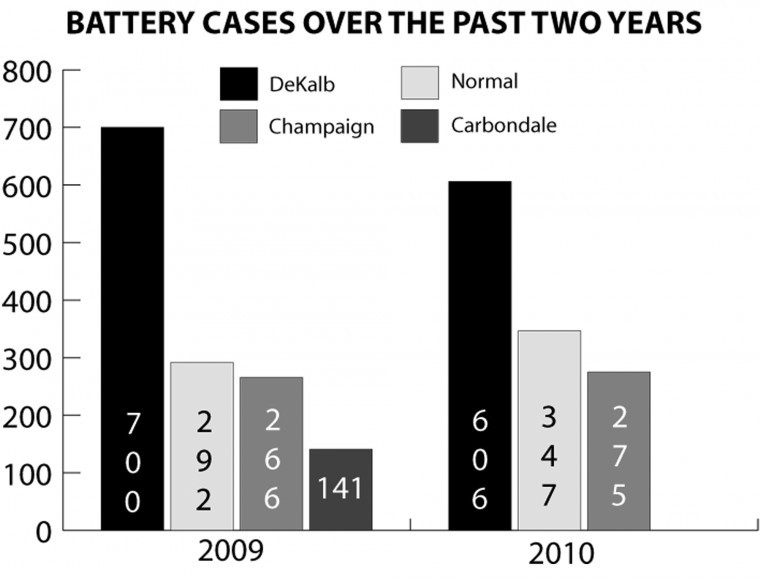2010 yields increased assault and battery cases in DeKalb
September 28, 2011
Incidents of assault and battery in the city increased by 38 percent between 2009 and 2010, according to the DeKalb Police Department’s 2010 Annual Report.
The report showed 127 incidents of aggravated assault and battery in 2010, an increase of 35 from 2009. The report also showed 606 incidents of battery alone, a decrease of 94 from 2009.
Assault is typically defined as the threat of bodily harm – real or implied – from one person to another, while battery is the physical act of causing bodily harm to another person. However, assault and battery can be combined to form a single charge.
DeKalb Police Lt. Gary Spangler said although there may be an increase from one year to the next, that does not necessarily mean there is a problem.
“It’s not something we’re going to ignore,” Spangler said. “It’s hard to put a finger on why the numbers fluctuate from year to year.”
NIU Police Sgt. Alan Smith said incidents of assault and battery on campus appeared to have increased between 2007 and 2010, but was unable to provide a specific number of incidents. NIU also appears to have experienced a decrease in assault and battery cases in 2011, he said.
Smith said NIU Police have increased patrols and interactions with students this year, and increased the number of community education programs involving NIU Police. Decreased university enrollment this year may also have had an impact on lower incident numbers, Smith said.
“Another factor can be that people are behaving themselves more this year,” Smith said.
David Weichel, DeKalb County assistant state’s attorney, said battery is a class A misdemeanor, punishable by up to one year in county jail and up to $500 in fines and costs. Court supervision is also an option if a defendant is eligible, he said. Weichel said assault is a class C misdemeanor, punishable by up to 30 days in jail and from 30 to 120 hours of community service. Weichel said court supervision is possible, but depends on the performance of community service.



